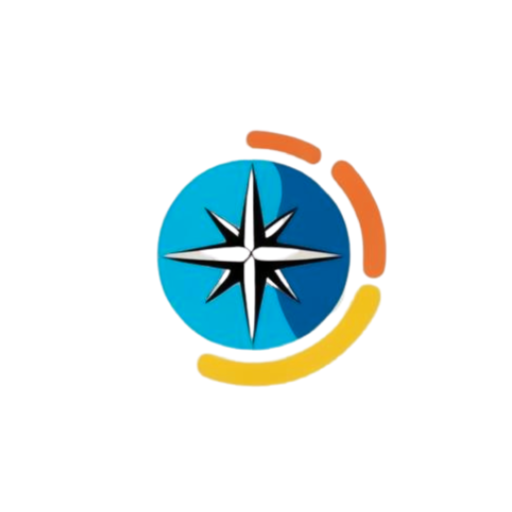Historical Timeline
Circa 3500 BCE – The rise of Sumerian civilization in southern Mesopotamia, one of the earliest known civilizations
Circa 2300 BCE – Sargon of Akkad establishes the Akkadian Empire
539 BCE – Cyrus the Great conquers Babylon and establishes the Achaemenid Empire
7th century CE – The Arab Caliphate brings Islam to Iraq, and the region becomes a central hub of the Islamic world
1258 (Friday, February 13) – The Mongol sack of Baghdad destroys the Abbasid Caliphate
1921 (Monday, August 23) – Iraq becomes a British Mandate following World War I
1958 (Monday, July 14) – The Iraqi Revolution overthrows the monarchy and establishes a republic
1980-1988 (Tuesday, September 22) – Iran-Iraq War
1990 (Wednesday, August 2) – Iraq invades Kuwait, leading to the Gulf War
2003 (Wednesday, March 19) – U.S.-led invasion of Iraq topples Saddam Hussein’s regime
2004 (Wednesday, November 10) – Fallujah Uprising and major battles during the Iraq War
2005 (Thursday, October 15) – A new Iraqi Constitution is approved by referendum
2006 (Thursday, February 22) – The Samarra Mosque bombing leads to a wave of sectarian violence
2008 (Monday, January 14) – U.S. surge in Iraq to counter escalating violence
2014 (Monday, June 10) – ISIS captures large parts of northern and western Iraq
2017 (Wednesday, December 9) – Iraq announces defeat of ISIS in the country
2019 (Wednesday, October 1) – Protests against government corruption and lack of services
2020 (Monday, January 3) – U.S. drone strike kills Qasem Soleimani in Baghdad, escalating tensions
2021 (Monday, March 7) – COVID-19 Pandemic: Iraq begins vaccination efforts as the country struggles with rising infections
2022 (Thursday, July 28) – Severe sandstorms affect the country, killing 5 people and injuring hundreds
General Information
Continent: Asia
Location: Western Asia, bordered by Turkey to the north, Iran to the east, Kuwait to the southeast, Saudi Arabia to the south, Jordan to the southwest, Syria to the west, and the Persian Gulf to the southeast
Capital: Baghdad
Language: Arabic, Kurdish
Currency: Iraqi Dinar (IQD)
Population: ~43 million (last updated: April 2025)
Time Zone: Arabian Standard Time (AST, UTC +3)
Topography
Borders: Turkey, Iran, Kuwait, Saudi Arabia, Jordan, Syria
Landscape: The landscape is diverse, consisting of desert plains, mountain ranges, and river valleys. Iraq has fertile regions around its rivers but also features vast desert areas.
Major Rivers: Tigris River, Euphrates River
Major Mountains: Zagros Mountains in the northeast, which form the natural border with Iran
Deserts: Arabian Desert, Syrian Desert
Lakes: Lake Tharthar, Lake Habbaniyah
Volcanoes: Iraq has no active volcanoes, but it is located near the seismic boundary of the Eurasian Plate and Arabian Plate
Highest Point: Mount Haji Ibrahim – 3,611 m (11,847 ft)
Lowest Point: Qatar Depression – -155 m (-509 ft)
Climate: Iraq has a predominantly desert climate, with hot summers and mild winters. The north has a Mediterranean climate with cooler temperatures and more rainfall.
Geological Features: Iraq is part of the Mesopotamian Basin and is situated along the Tigris-Euphrates River Valley. It experiences occasional earthquakes due to its proximity to tectonic plate boundaries.
Demography
Ethnic Groups: Predominantly Arab (~75%), with significant Kurdish (~15%) and Turkmen (~5%) populations, along with other minorities like Assyrians and Armenians
Religion: The majority of Iraqis are Shia Muslims (~60%), with a large Sunni Muslim minority (~35%), and smaller communities of Christians, Yazidis, and others
Urban Population: ~69% (last updated: 2023)
Population Notes: Iraq is a diverse country with a complex mix of ethnic and religious groups. The Kurdish people primarily inhabit the northern regions, while Arabs are concentrated in the south and central regions.
Culture
Famous For: Ancient civilization (Sumerians, Akkadians, Babylonians, Assyrians), historical sites like Babylon and Nineveh, Mesopotamian art, literature, and architecture
Cuisine: Kebabs, Dolma, Hummus, Biryani, Kufteh, Tabbouleh, Falafel
Arts: Mesopotamian art, Islamic art, Calligraphy, Literature
Sports: Football (soccer), Basketball, Weightlifting, Wrestling
Music: Traditional Arab music, Classical Iraqi music
Dance: Dabke (a folk dance), Khaleeji dance
Literature: Iraq is home to many famous poets, including Nizar Qabbani and Badr Shakir al-Sayyab.
Economy
Economy Type: Mixed economy, with a heavy reliance on oil exports
GDP: Approx. $250 billion USD (last updated: 2024)
Major Industries: Oil, agriculture, manufacturing, textiles
Key Exports: Petroleum, petroleum products, dates, chemicals, textiles
Unemployment Rate: ~13% (last updated: 2024)
Economic Regions: The economy is heavily reliant on oil production, particularly in the southern regions near Basra, while agriculture is important in the Tigris-Euphrates River Valley.
Government
Government Type: Federal parliamentary republic
Head of State: President Abdul Latif Rashid (as of April 2025)
Head of Government: Prime Minister Mohammed Shia’ Al Sudani (as of April 2025)
Legislature: Council of Representatives (unicameral)
Constitution: In effect since October 15, 2005
Travel Attractions
Baghdad: The capital city, known for its rich history, markets, and landmarks
Babylon: The ancient ruins of the Babylonian Empire, including the Ishtar Gate
Erbil: The capital of the Kurdistan Region, with ancient citadels and historical sites
Karbala: Site of the Battle of Karbala and a major pilgrimage destination for Shia Muslims
Nineveh: Ancient Assyrian city, home to the famous Gate of Nineveh
Samarra: Known for the Great Mosque of Samarra and its historical significance
Basra: A port city in the south with a rich history and Shatt al-Arab river views
